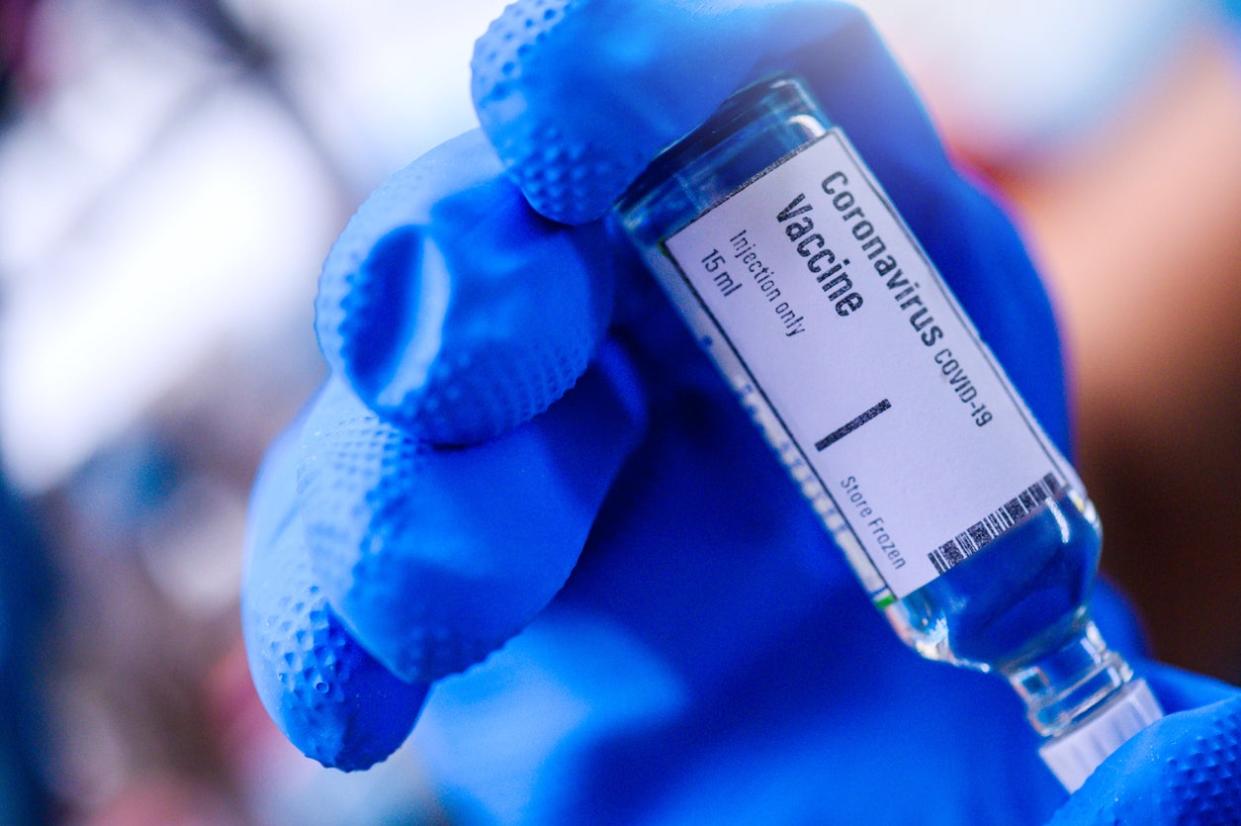Vaccines may not prevent the transmission of Covid-19 from vaccinated to unvaccinated, Moderna chief doctor warns

The recent data from multiple coronavirus vaccine trials has uplifted people around the world – as it was revealed multiple jabs showed high efficacy against the novel virus.
Moderna, an American biotechnology company, announced its coronavirus vaccine was 94.5 per cent effective at protecting people from Covid-19. But the company’s top doctor has now warned this news doesn’t necessarily mean those who are vaccinated will be unable to transmit the virus to the unvaccinated.
"They do not show that they prevent you from potentially carrying this virus transiently and infecting others," Moderna Chief Medical Officer Tal Zaks told Axios, adding the public should not “over-interpret the results” of the vaccine yet.
“I think we need to be careful, as we get vaccinated, not to over-interpret the results,” Dr Zaks said. “When we start the deployment of this vaccine, we will not have sufficient concrete data to prove that this vaccine reduces transmission.”
“Do I believe that it reduces transmission? Absolutely yes, and I say this because of the science,” he added. “But absent proof, I think it’s important that we don’t change behaviors solely on the basis of vaccination.”
The sobering clarification means that while a coronavirus vaccine would be one more step for the public to return to some semblance of normalcy, that return might take longer depending on transmission results.
If it turns out that the vaccines only prevent serious complications of Covid-19 and do not prevent the transmission of the virus from one person to another, then that means “getting back to normal” will take longer and rely on a vast majority of the world population getting vaccinated.
About 58 per cent of the American public said they would be willing to take the coronavirus vaccine if it were available right now, according to a Gallup poll released last week. Although not the vast majority health experts would want to get vaccinated, the number of willing participants has grown from the just 50 per cent who said they would take the vaccine in September.
The survey was conducted between 19 October and 1 November at a time when coronavirus cases were surging throughout the country.
Positive public outlook for the vaccines could be even higher now after the positive news from Moderna as well as Pfizer and AstraZeneca – the other two companies that reported their vaccines were effective against Covid-19 in recent weeks.
Pfizer applied for emergency authorisation from the US Food and Drug Administration (FDA) on Friday after it found its vaccine was 95 per cent effective against the novel virus. Moderna will likely apply for a similar authorisation by the end of November, Moncef Slaoui, the head of Operation Warp Speed, said on Sunday.
Officials, with the help of Operation Warp Speed, have planned for millions of doses of the coronavirus vaccine to be available to the American public by the end of the year, but those doses will likely first go to the most vulnerable populations and frontline workers. The vast majority of the public is not anticipated to have access to the coronavirus vaccine until spring 2021 at the earliest.
Due to how long a coronavirus vaccine will take to distribute, plus questions surrounding its prevention of spreading the virus, health experts have implored the public to maintain other behaviours to curb the spread of the novel virus, including wearing a mask and avoiding large gatherings.
Read More
Coronavirus surge has LA on the brink of a stay-home order
AOC criticises McConnell for dismissing Senate as coronavirus spikes

 Yahoo News
Yahoo News 
